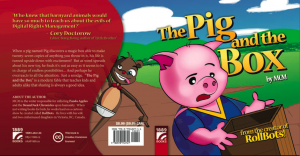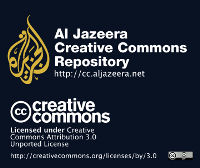I am coming to this event a little late, Brian Flager gave a great 101 overview of the settlement. I will approach him for a copy of his slides to post online or upload an overview later (with comments if I can get it on slideshare.net).
I started blogging during Jule Sigall comments on what does this settlement mean for the future?
This settlement will codify Google approach to opt-out of scanning.
There is practically no burden under this settlement for Google to find copyright owners.
The breadth of this settlement is immense, it includes the authors of all books under US copyright. This includes all orphaned works!
Google and the Authors guild must give access to the research corpus.
This deal gives an antitrust exemption to the major book publishers, and a lot of money. Although compared to statutory damages it is not very much money. Authors and publishers get $65 a book this is nothing compared to statutory damages of $750 to $150,000 per book.
The settlement has a mandatory arbitration clause! (this was new to me)
Q: How will this settlement effect NPO’s competing with google, like the Internet archive?
Brian Flager’s Answer: This gives Google a lot more content and may make the internet archive less relevant in the online book scanning worlds.
Jule Sigall’s Answer: The open content alliance and Brewster Kahle (the head of the Internet Archive) have spoken out against this settlement. Jule then pointed out Brewrter’s recent blog post on this very issue:
A Monopoly dressed in a Class-action Suit?
Dan Clancy, head of Google Book Search, presented and took questions at the American Library Association conference Jan 24, 2009.
He presented the class-action settlement that proposes a new copyright system that would allow Google to scan and sell digital access to almost all books published in the last 85 years.
Brewster Kahle, Internet Archive, asked a series of “yes/no”
questions to clarify some issues.* Is this settlement modifiable? Dan Clancy: Yes, by the court. [This window closes in June 2009, I believe]
* Was this settlement negotiated primarily by people bound to secrecy?
Dan Clancy: Yes.* Under this settlement, can any other registries serve the exact same roles as the proposed new registry organization?
Dan Clancy: No.* Under this settlement, can any other organizations get every legal immunity to copyright suits that Google gets?
Dan Clancy: No.* Does this settlement make it more difficult for others to enter the
area of out-of-print digital book provisioning? Paul Courant,
University of Michigan, professor of economics: in his opinion: yes.
Paul had in previous comments on this panel that Google would be a monopoly.(I confirmed the yes/no at the end of the responses.)
-brewster
Q: what are the negative effects for users?
Jule: This leaves users with one access point, this might also undermine the incentive of copyright and mean that less books will be produces. (Brian Rowe Note: I agree on the monopoly risk, I strongly disagree on the incentive argument)
Brian: this is not a win for fair use many wanted to see a fair use win. This could also reshape publishers. The playing field will change
Answer (from a member of the audience): I think the users are the real loser because we nover got a chance to weigh in.
Q: could you talk about the function of the registry and how it might conflict with authors rights?
Jule: The registry will not work with authors to tell Google not to display works.
(answers where paraphrased and are open to edits if either panelist would like to clarify them)






